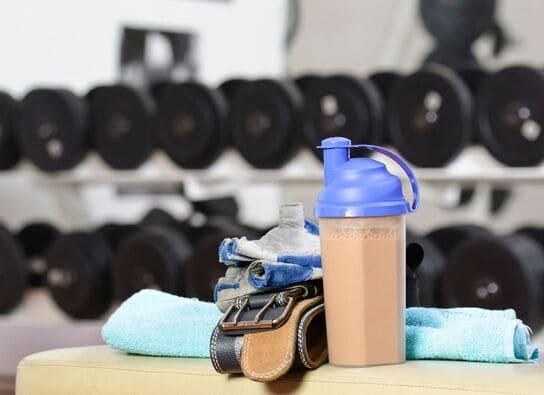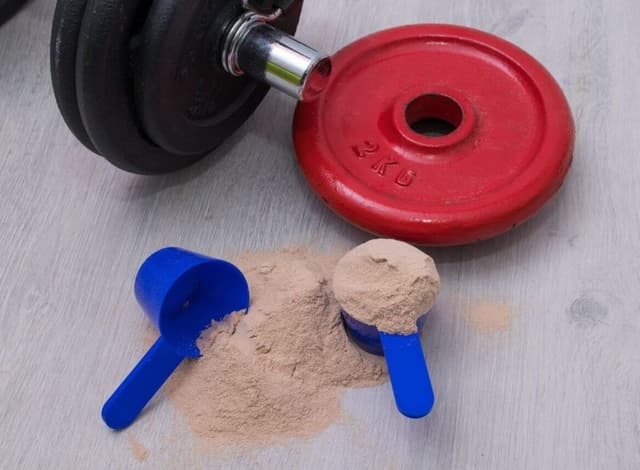Creatine HCL vs. Monohydrate: Which One Is Right for You?

February 17, 2024
Creatine is one of the most popular supplements in the fitness world, known for boosting strength, endurance, and muscle growth. But with different types available, the question arises: which form of creatine is best for you? The debate between creatine HCL vs. monohydrate often leaves many confused. While both offer benefits, the right choice depends on your specific goals, preferences, and how your body responds. In this post, we’ll break down the differences between the two to help you decide which is the best creatine for your fitness journey.
What Is Creatine, and Why Is It Important?
Creatine is a naturally occurring substance found in your muscles, providing them with the energy they need during intense exercise. It works by replenishing ATP (adenosine triphosphate), the body’s primary energy source during high-intensity, short-duration activities like weightlifting or sprinting. Many athletes and fitness enthusiasts take creatine supplements to enhance their performance, increase muscle mass, and recover faster from workouts.
But when it comes to choosing the best creatine, there are two leading contenders: creatine monohydrate and creatine HCL (hydrochloride). Each type has its pros and cons, so let’s dive deeper into how they compare.
Creatine Monohydrate: The Classic Choice
Creatine monohydrate is the most researched and widely used form of creatine, and for a good reason. This type has been proven time and again to improve strength, increase muscle mass, and enhance athletic performance. It’s often referred to as the "gold standard" of creatine supplements due to its effectiveness.
Benefits of Creatine Monohydrate
- Extensive Research Backing: Creatine monohydrate is the most studied form of creatine, with numerous clinical trials supporting its safety and effectiveness.
- Proven to Increase Muscle Mass: Monohydrate is known for enhancing muscle size by increasing water retention within muscle cells, making it a favorite for bodybuilders.
- Affordable: Compared to other forms, monohydrate is generally the most cost-effective, making it accessible to those on a budget.
- Easy to Find: Since it’s the most common form, you’ll find creatine monohydrate in nearly every supplement store and online platform.
Drawbacks of Creatine Monohydrate
While creatine monohydrate offers many benefits, it’s not without its downsides.
- Water Retention: One of the main side effects is that it can cause bloating or water weight gain, which some users might find undesirable.
- Digestive Issues: A small percentage of people experience stomach cramps or diarrhea after taking high doses of monohydrate.
- Loading Phase Required: To achieve optimal results, users often need to go through a "loading phase," which involves taking higher doses for the first 5-7 days.
How to Use Creatine Monohydrate
For best results, creatine monohydrate is typically taken in two phases:
- Loading Phase: 20 grams per day for 5-7 days (spread across 4 doses).
- Maintenance Phase: 3-5 grams per day for the duration of supplementation.
This method helps saturate your muscles with creatine more quickly, although some prefer to skip the loading phase and stick with 3-5 grams daily, leading to full muscle saturation over a few weeks.
Is Creatine Monohydrate the Best Creatine?
For those who value proven results and don’t mind some temporary water retention, creatine monohydrate is often considered the best creatine for overall muscle growth and performance.
Creatine HCL: The Newer Alternative
Creatine HCL (hydrochloride) is a newer form of creatine that has gained popularity due to its improved solubility and absorption rates. Some believe it’s a better option for those who experience bloating or digestive issues with creatine monohydrate.
Benefits of Creatine HCL
- Better Absorption: Creatine HCL dissolves more easily in water, allowing for better absorption by the body. This means you can take lower doses to achieve the same effects.
- No Water Retention: Since it doesn’t cause the same water retention as monohydrate, creatine HCL is ideal for those looking to avoid bloating or temporary weight gain.
- Smaller Doses: With its enhanced absorption, you can take just 1-2 grams of creatine HCL, compared to the 5 grams often required with monohydrate.
- No Loading Phase: Unlike creatine monohydrate, there’s no need for a loading phase with HCL. You can start with a small dose and still see benefits quickly.
Drawbacks of Creatine HCL
Our Top Recommendations

Optimum Nutrition Micronized Creatine Monohydrate Powder
Micronized for easy mixing, supports muscle growth and endurance.
See on Amazon$0.35 per 5g serving

Nutricost Creatine Monohydrate Micronized Powder
Third-party tested, non-GMO, 5g of pure creatine per serving.
See on Amazon$0.2 per 5g serving

NSF Certified, supports muscle power and recovery.
See on Amazon$0.46 per 5g serving

ProMix Creatine Monohydrate Powder
Micronized, additive-free, ideal for performance and recovery.
See on Amazon$0.36 per 5g serving

NOW Foods Sports Nutrition Unflavored
100% pure creatine, GMP certified, boosts strength and endurance.
See on Amazon$0.2 per 5g serving
- More Expensive: One of the main downsides of creatine HCL is that it’s often more expensive than monohydrate.
- Less Research: While there are promising studies on HCL, it hasn’t been studied as extensively as creatine monohydrate, making some people hesitant to switch.
- Availability: Creatine HCL can be harder to find compared to monohydrate, and it may not be available in every supplement store.
How to Use Creatine HCL
Since creatine HCL doesn’t require a loading phase, the dosage is much simpler:
- Daily Use: 1-2 grams per day is enough to achieve noticeable results, and it can be taken with water or your post-workout shake.
This makes creatine HCL a convenient option for those who prefer a more straightforward supplementation routine.
Is Creatine HCL the Best Creatine?
For individuals who experience digestive discomfort or water retention with creatine monohydrate, HCL can be the best creatine. It’s also ideal for those looking for a more convenient and less bulky supplement.
Creatine Monohydrate vs. HCL: Which One Is Right for You?
Now that we’ve broken down the benefits and drawbacks of both forms, the question remains: Which is the best creatine for you?
Here’s a quick comparison to help you decide:
Creatine MonohydrateCreatine HCLMost researched and provenBetter absorption and solubilityCan cause water retentionNo water retentionRequires a loading phaseNo loading phaseMore affordableMore expensive5 grams daily (higher doses)1-2 grams daily (lower doses)Widely availableLess widely available
Choose Creatine Monohydrate If:
- You’re looking for a well-researched, proven supplement.
- You don’t mind some temporary water weight gain.
- You want an affordable option.
- You’re willing to go through a loading phase for faster results.
Choose Creatine HCL If:
- You want to avoid bloating and water retention.
- You prefer smaller doses.
- You have experienced digestive issues with monohydrate.
- You’re willing to pay a little more for convenience.
How to Maximize the Benefits of Creatine
No matter which creatine you choose, here are some tips to get the most out of your supplement:
- Stay Hydrated: Creatine draws water into your muscles, so it’s essential to drink plenty of water to avoid dehydration.
- Combine with Protein: Taking creatine alongside a protein-rich meal or shake can enhance its effectiveness, especially post-workout.
- Consistency Is Key: For optimal results, take creatine consistently, whether you choose monohydrate or HCL. It works best when your muscles are saturated over time.
- Cycle Creatine: While creatine is safe for long-term use, some people prefer to cycle on and off every 8-12 weeks to maintain effectiveness.
Conclusion
When it comes to choosing the best creatine, there’s no one-size-fits-all answer. Creatine monohydrate is a time-tested option with plenty of research to back it up, making it a great choice for most people. On the other hand, creatine HCL offers a more refined, convenient option, especially for those prone to bloating or digestive issues. Ultimately, the right choice depends on your body’s response and your fitness goals.
Whichever form you choose, remember that consistency, hydration, and proper dosing are key to maximizing the benefits of creatine. Want to learn more about how creatine can supercharge your workouts? Explore our blog for tips, product reviews, and expert advice on all things fitness.






